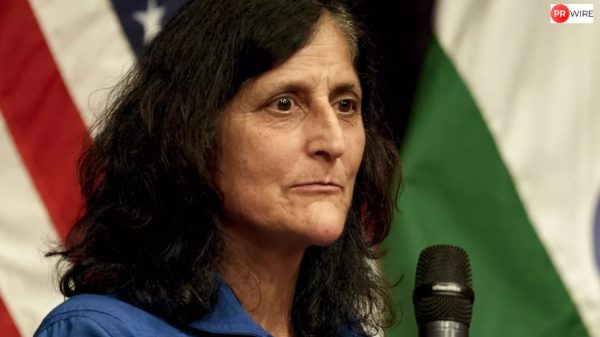The New Zealand Association of Scientists has used the national School Strike for Climate to foreground increasing concerns about research funding.
The association, the country’s main representative group for scientists, asked attendees at the event on 5 April to show “support for science in signs, pins and banners” with the hashtag #SOS for Save Our Science.
Association co-president Lucy Stewart said the protest came “at a time when government support for research, including much of the climate and environmental research in the NZ$97 million-per-year National Science Challenges, is falling off a fiscal cliff”.
“Many scientists will be marching in support of rangitahi [young people] and youth yet also have a message. It’s an SOS—Save Our Science. Save the science-facing cuts that are needed to address the climate change challenge.”
Her co-president Troy Baisden said that as well as the National Science Challenges, “additional large research programs will end within 18 months. No clear replacements mean an end to many careers in vital areas of climate science when we need more work.”
He added: “Top scientists may leave the country and younger researchers may give up on careers in New Zealand related to climate and environment.”
A research report from scientists at the Deep South National Science Challenge, issued in March, called for “renewed and strategic support” for climate science.
“Climate science is vital if the country is to have the information needed to adapt to climate change, but the current absence of a clear research investment strategy risks the country’s capacity to provide this information,” it said.
“Evaluating climate risks in New Zealand fundamentally relies on a robust understanding of the climate system and the insights into mean climate change and climate extremes generated by climate scientists are needed now more than ever.”
Callaghan appeal
In a separate move, 86 scientists, engineers, and support staff from the government research and development agency Callaghan Innovation have written to science minister Judith Collins to plead for help as cuts loom.
In a letter circulated by researcher Ben Wylie-van Eerd, the group told Collins it was “hugely concerned about our organization’s proposed strategic reset. If the change goes ahead as planned, we see a genuine risk to the future of science at Callaghan Innovation.”
It said the reset would “cut a substantial number of science and engineering roles within this year”, leading to a loss of expertise and research teams.
“We do not see this as a change to a new sustainable science organization but rather a first step that will lead to inevitable decline,” the scientists wrote. The cuts could mean that science expertise is lost “from New Zealand entirely” as scientists seek other opportunities.
The group said it accepted that the agency faced “difficulties and challenges”, but the new direction should not “reduce the amount of research and development we do in New Zealand”. Wylie-van Eerd stood as a candidate for the Opportunities Party in 2023.
The Public Service Association, a trade union, has said that the “restructuring plan” presented to Callaghan staff in March would leave the agency working on “commercial-only” research and risk “stripping Callaghan Innovation of the very people that have led groundbreaking research that has benefited businesses and New Zealanders for many years”. The association said the restructuring was a direct result of the decision not to go ahead with the Wellington Science City project, which would have provided new facilities.
Collins’s office has been contacted for comment.




























